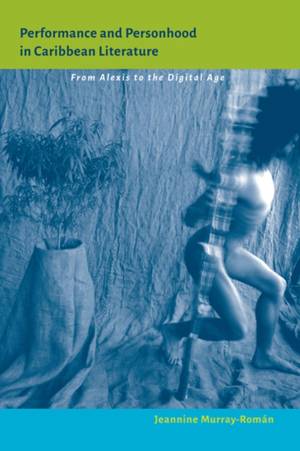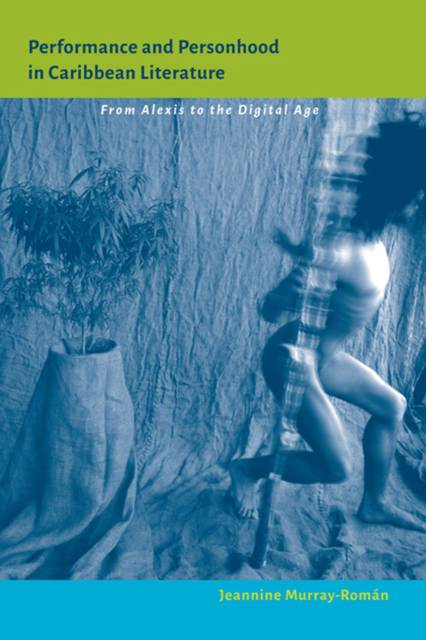
- Afhalen na 1 uur in een winkel met voorraad
- Gratis thuislevering in België vanaf € 30
- Ruim aanbod met 7 miljoen producten
- Afhalen na 1 uur in een winkel met voorraad
- Gratis thuislevering in België vanaf € 30
- Ruim aanbod met 7 miljoen producten
Performance and Personhood in Caribbean Literature
From Alexis to the Digital Age
Jeannine Murray-RománOmschrijving
Focusing on the literary representation of performance practices in anglophone, francophone, and hispanophone Caribbean literature, Jeannine Murray-Román shows how a shared regional aesthetic emerges from the descriptions of music, dance, and oral storytelling events. Because the historical circumstances that led to the development of performance traditions supersede the geopolitical and linguistic divisions of colonialism, the literary uses of these traditions resonate across the linguistic boundaries of the region. The author thus identifies the aesthetic that emerges from the act of writing about live arts and moving bodies as a practice that is grounded in the historically, geographically, and culturally specific features of the Caribbean itself.
Working with twentieth- and twenty-first-century sources ranging from theatrical works and novels to blogs, Murray-Román examines the ways in which writers such as Jacques Stephen Alexis, Zoé Valdés, Rosario Ferré, Patrick Chamoiseau, and Marlon James experiment with textually compensating for the loss of the corporeality of live relationship in performance traditions. Through their exploration of the interaction of literature and performance, she argues, Caribbean writers themselves offer a mode of bridging the disjunction between cultural and philosophical approaches within Caribbean studies.
Specificaties
Betrokkenen
- Auteur(s):
- Uitgeverij:
Inhoud
- Aantal bladzijden:
- 256
- Taal:
- Engels
- Reeks:
Eigenschappen
- Productcode (EAN):
- 9780813938486
- Verschijningsdatum:
- 11/01/2016
- Uitvoering:
- Paperback
- Formaat:
- Trade paperback (VS)
- Afmetingen:
- 152 mm x 226 mm
- Gewicht:
- 362 g

Alleen bij Standaard Boekhandel
Beoordelingen
We publiceren alleen reviews die voldoen aan de voorwaarden voor reviews. Bekijk onze voorwaarden voor reviews.











